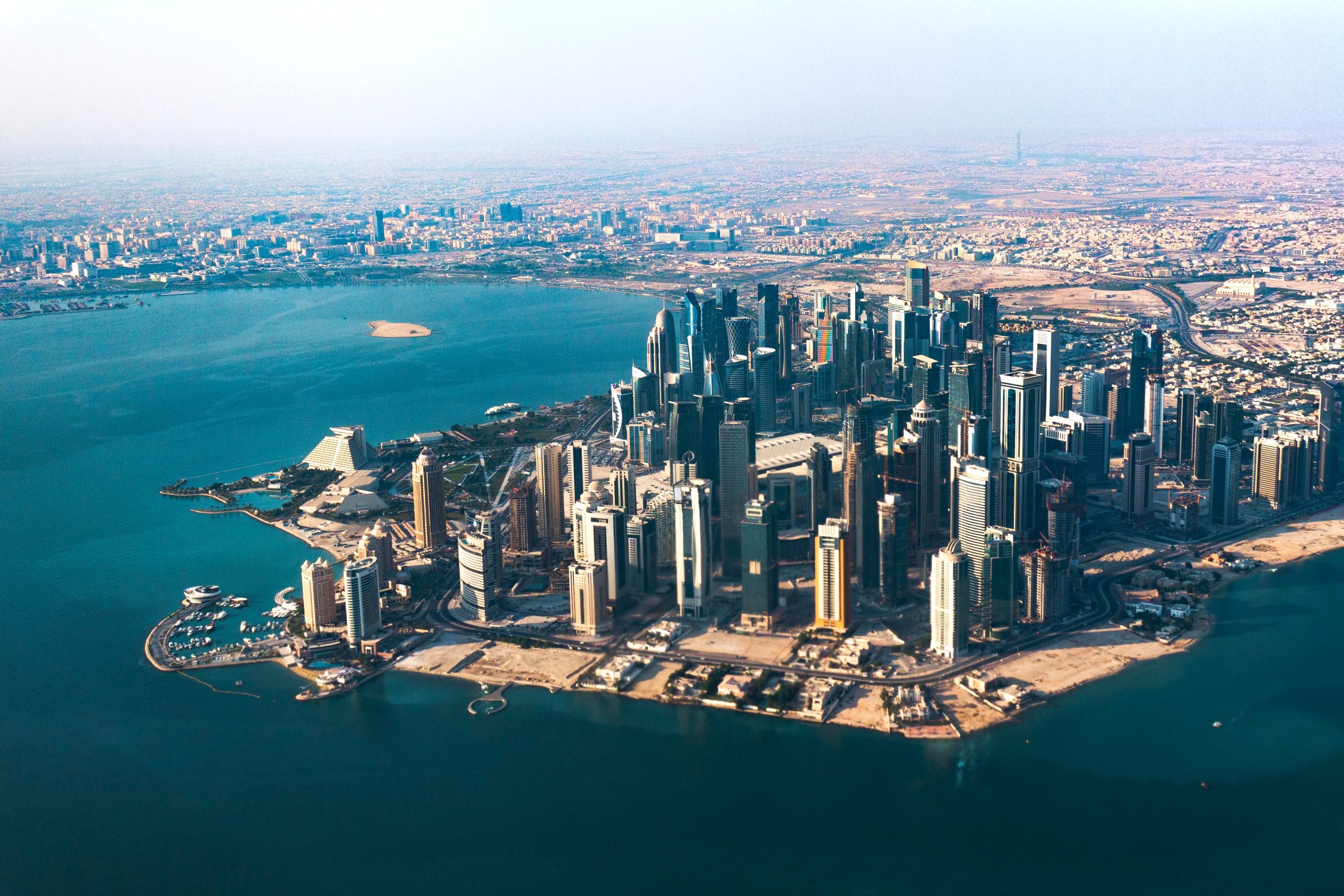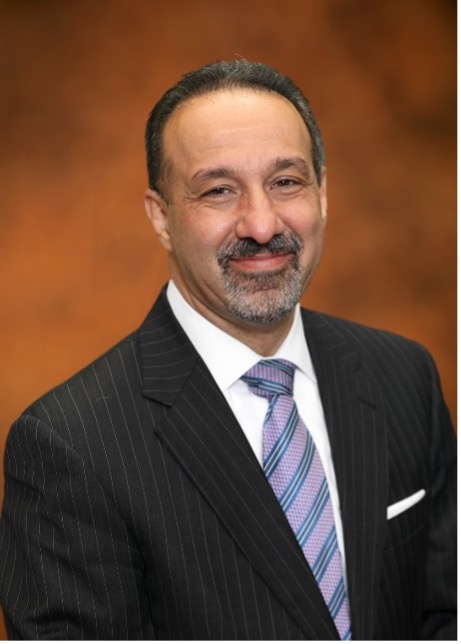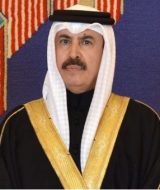
- 13 Jul 2021
Blockade Blowback: Qatar-Iran Ties After Al-Ula
(This event is organised by MEI Diffusion of Ideas-Gulf cluster)
Abstract
Qatar has taken the first steps to effect reconciliation with its Gulf neighbours, having recently welcomed Saudi Arabia’s new ambassador to Doha. Elsewhere, reports indicate that Bahrain invited Qatar for bilateral talks to strengthen Gulf co-operation. Yet, against the backdrop of a diplomatic freeze from 2017 to 2021, Doha found it vital to transit via Iran’s airspace and territorial waters in order to circumvent the blockade imposed by the anti-Qatar quartet (Saudi Arabia, Bahrain, the UAE and Egypt). Considering the Al-Ula declaration earlier this year, will there be a reversal in the warming of Qatar-Iran ties?
With the ascension of Ebrahim Raisi in Tehran and his conservative administration, will the nature of the Qatar-Iran relationship change? Undeniably, Doha’s ties to Iranian rivals such as the US and Saudi Arabia remain of strategic value. How can Qatar sustain its “hedging” strategy? Can Doha act as a reliable intermediary in, for instance, facilitating a US-Iran breakthrough? What are the implications for regional security?
In this webinar, the Middle East Institute (NUS) will host two distinguished speakers to tackle these questions.
This public talk will be conducted online via Zoom on Tuesday, 13 July 2021, from 4.00pm to 5.30pm (Singapore Time). All are welcome to participate. This event is free, however, registration is compulsory. Successful registrants will receive a confirmation email with the Zoom details closer to the date of the event.
Photo by Radoslaw Prekurat on Unsplash
Listen to the full event here:
Watch the full event here:
Read the Summary of Event Proceedings:
By Ethan Phua
Intern, Middle East Institute, National University of Singapore
With the political fallout of the Qatar diplomatic crisis of 2017 slowly making way for gradual diplomatic reconciliation between Doha and the anti-Qatar quartet (Saudi Arabia, Bahrain, the UAE and Egypt), Professor Mehran Kamrava and His Excellency Nasser bin Hamad Mubarak Al-Khalifa discussed the future of Qatar-Iran ties. In particular, whether a détente with the quartet following the Al-Ula declaration could mean distancing the new conservative administration under Ebrahim Raisi in Tehran.
Qatar and Iran: More than Neighbours
The discussion began with the central question of whether the Al-Ula declaration will mean a reversal in the friendship between Qatar and Iran. Professor Kamrava argued against it, in no uncertain terms, as he believed their relations would only deepen in the near future given the current regional and international dynamics as well as strategic interests of all parties involved. Qatar’s immediate offer to mediate between Saudi Arabia and Iran following Al-Ula shows the state’s eagerness to improve bilateral relations with both the regional powers. His Excellency Al-Khalifa concurred with the professor’s view, believing that while an end to the diplomatic blockade is good news for Qatar, “excellent relations’ ‘ are desired by Doha with Tehran as well as the Gulf states. He further stressed that stability is the common interest of the majority of the countries in the Middle East, given the unfortunate situation seen in some parts of the region – notably Afghanistan, Iraq, Syria and Yemen. Co-operation with Iran is necessary to restore stability and peace to those areas and hence, he is confident that all parties in the Gulf region will come to a common consensus to achieve that goal.
Both speakers were keen to point out the depth of the relationship between the two nations as robust and deep, given their shared history, culture and geography. His Excellency Al-Khalifa explained that relations between nations are forged over centuries of history and in this case, it cannot be easily reversed as there are numerous commonalities shared by Qatar and Iran. The bond shared by the two nations include factors such as familial ties within the population as Qataris make up a portion of Iran’s large Arabic community. The geographic proximity also makes the relationship more than a strategic diplomatic motive but a practical necessity for both countries, highlighted by their joint ownership of one of the largest gas fields in the world. Good relations with its neighbors would greatly benefit Iran, as this could bring desperately needed investments into the young, populous and educated nation that would lead to significant economic development and prosperity. Therefore, relations will not deteriorate after Al-Ula and the historic relationship the two countries share will continue to improve.
Reconciliation Difficulties
Professor Kamrava stated that what happened in 2017 was intended to “bring Qatar to its knees”. It is now well-known that the attempt has proven to become a massive failure, given Qatar’s improved economic performance after the blockade and he believes this will lead to a new strategic environment in the Gulf post-Al-Ula. There is a sudden change in regional dynamics that will force a shift in Riyadh’s policy – not just towards Doha but also the rest of the Gulf states, following a change in administration in the White House as well as a low-key security dialogue between the UAE and Iran. The restoration of diplomatic relations with Qatar, therefore, has become essential to the Saudis more so than to the UAE or Bahrain.
Both speakers agreed that the blockade imposed on Qatar in 2017 was unexpected and deeply hurtful and it is not possible to recover overnight from such a drastic diplomatic incident. While Saudi-Qatari relations seem to have recovered at a swift pace with extensive movements of goods, capital and people between the two neighbours, the process of reverting to old times seems to be taking longer in the case of the UAE and Bahrain – understandably so given the magnitude of damage from 2017. His Excellency explained that the damage from the severing of diplomatic ties was more severe in this case because of the familial bond between the Gulf states and therefore requires more time to recuperate from what the Professor Kamrava describes as a “family dispute of really unprecedented proportions”. While His Excellency Al-Khalifa believes that Doha’s reconciliation with Abu Dhabi and Manama is a matter of when and not if, Professor Kamrava holds a more skeptical view over the possibility of a return to pre-2017 relations.
The Gulf Co-operation Council’s (GCC) future has been significantly questioned since the blockade, given the seemingly lack of commitment to maintain the organisation’s primary objective of co-operation. Professor Kamrava divides the GCC into two dimensions – a political dimension and a policy-oriented one. The former is responsible for broader issues such as common defence, while the latter focuses on more practical and immediate issues such as visa regulations and common currency. He believes that the political fallout between Qatar and the anti-Qatar quartet will lead to an inability of the GCC’s political dimension to recover, which will in turn severely delay or even nullify the process of regional integration and achieving multilateralism. This will unfortunately limit the GCC to only function as a regional policy maker instead of a substantive political organisation.
Qatar’s Foreign Policy- The New Yugoslavia?
Just as Belgrade once stood as a window in the Iron Curtain, maintaining relations with both the West and the Soviets as well as founding the non-aligned movement during the Cold War, Doha has been seemingly replicating the Yugoslavs in the modern regional Cold War by maintaining relations with Tehran, Washington, Moscow, Ankara and even extremists such as Hamas and the Muslim Brotherhood. Qatar’s role as a reliable regional mediator has been solidified following the US-Taliban Doha deal, as well as hosting meetings between the US and Iran – this role will most likely be important in regional dynamics given the numerous conflicts that need to be resolved in the region. Both His Excellency and Professor Kamrava believe that Qatar will welcome and facilitate all parties of any regional disputes, so long as there is a desire to co-operate and compromise.
With conflicts raging across the region, His Excellency emphasised the necessity of dialogue with Iran since it will play a crucial role in any potential peace agreements that will hopefully, one day, end the conflicts in Yemen, Syria, and even Afghanistan.
The regime in Tehran needs to be brought to the negotiating table in order to reach any sort of compromise that would finally give the region the stability that it has been deprived of thus far. Professor Kamrava further pointed out that the Rouhani administration made several attempts to reach out to its Arab neighbours – in particular with the Saudis and Emiratis, including the Hormuz Peace Endeavor (HOPE) that was rejected by the Saudis. However, the possibility of integrating Iran into the GCC framework remains a daunting task that will be far from easy, reminiscent of the failure of HOPE. It is difficult to simply invite a party into an already devised pre-existing structure as it does not allow for compromise or flexibility to accommodate the incoming party. Instead of making Iran play “rear-guard action”, Professor Kamrava believes that a more meaningful way of achieving a security agreement would be to start a fresh dialogue with all parties involved and build on the various security concerns.
“Robust, deep and multi-dimensional” was how Professor Kamrava described Qatar’s relationship with Turkey. Given the high volume of trade and investments between the two nations, the stationing of Turkish troops in Qatar, both nations being majority Sunni Muslim, and many other examples of co-operation and bilateral friendship. Ankara’s strategic interest in Qatar has been said to be for the purpose of projecting influence and power not just in the Arabian Peninsula but even to the Horn of Africa, while using Qatar as a potential staging ground. The apparent positive personal relationship and chemistry between the leaders of the two states have been helpful in furthering diplomatic ties and as it stands, Turkey will be one of Qatar’s most important partners for the foreseeable future.
Highlights from the Q&A session
When asked how significant the shared gas field will be for bilateral relations between Iran and Qatar, Professor Kamrava said that it is a lifeline for Qatar and incredibly important for Iran. However, the latter has not been able to fully utilise it due to American sanctions as well as the difficulty for it to engage in banking and other commercial transactions. This mutual strategic dependence will hence mean co-operation and friendship between the two nations.
Regarding the question of whether Qatar hosting the Taliban office will affect its relations with Tehran, His Excellency Al-Khalifa said that was created for the purpose of negotiating with the Americans. With the American withdrawal from Afghanistan, only time will tell what this means for Qatar as the Taliban’s strength has been seemingly growing significantly recently. However, with the Taliban eager to meet with Tehran and Moscow, it may seem like the office in Qatar will be underused in the foreseeable future despite Doha’s eagerness to act as the region’s mediator.
Both Professor Kamrava and His Excellency Al-Khalifa were asked if the anti-Qatar quartet will have to face diplomatic and consequences for the blockade and for that, they shared that the cost had already been paid by the parties involved – in the form of reputation and trust. The failure of the blockade gambit was a diplomatic humiliation and in many ways, Al-Ula can be seen as a surrender and a tremendous loss of prestige and face. However, moving on from the blockade remains the most important issue for all of them.
About the Speakers

Professor of Government
Georgetown University-Qatar
Nasser bin Hamad Mubarak Al-Khalifa
Former Ambassador, Qatar
Mehran Kamrava is Professor of government at Georgetown University Qatar. He also directs the Iranian studies unit at the Arab Center for Research and Policy Studies. Kamrava is the author of a number of journal articles and books, including, most recently, A Concise History of Revolution (Cambridge University Press, 2020); Troubled Waters: Insecurity in the Persian Gulf (Cornell University Press, 2018); Inside the Arab State (Oxford University Press, 2018); The Impossibility of Palestine: History, Geography, and the Road Ahead (Yale University Press, 2016); Qatar: Small State, Big Politics (Cornell University Press, 2015); The Modern Middle East: A Political History since the First World War, 3rd ed. (University of California Press, 2013); and Iran’s Intellectual Revolution (Cambridge University Press, 2008).

His Excellency Nasser bin Hamad Mubarak Al-Khalifa was the Ambassador of the State of Qatar to the Republic of Croatia. In his illustrious diplomatic career of over 40 years, Al-Khalifa has served as Qatar’s Ambassador to the US (2005-2008), United Kingdom (2000-2005) and as well as Qatar’s Permanent Representative to the United Nations (1996-1998). He was also a non-resident ambassador to several European countries, Canada, Argentina, Colombia and Cuba. Having represented Qatar at regional and international conferences, Al-Khalifa equally takes a keen interest in academic research, having completed fellowships at Princeton University, Harvard University, the Oxford Centre for Islamic Studies and the Arab Thought Forum in Jordan.




